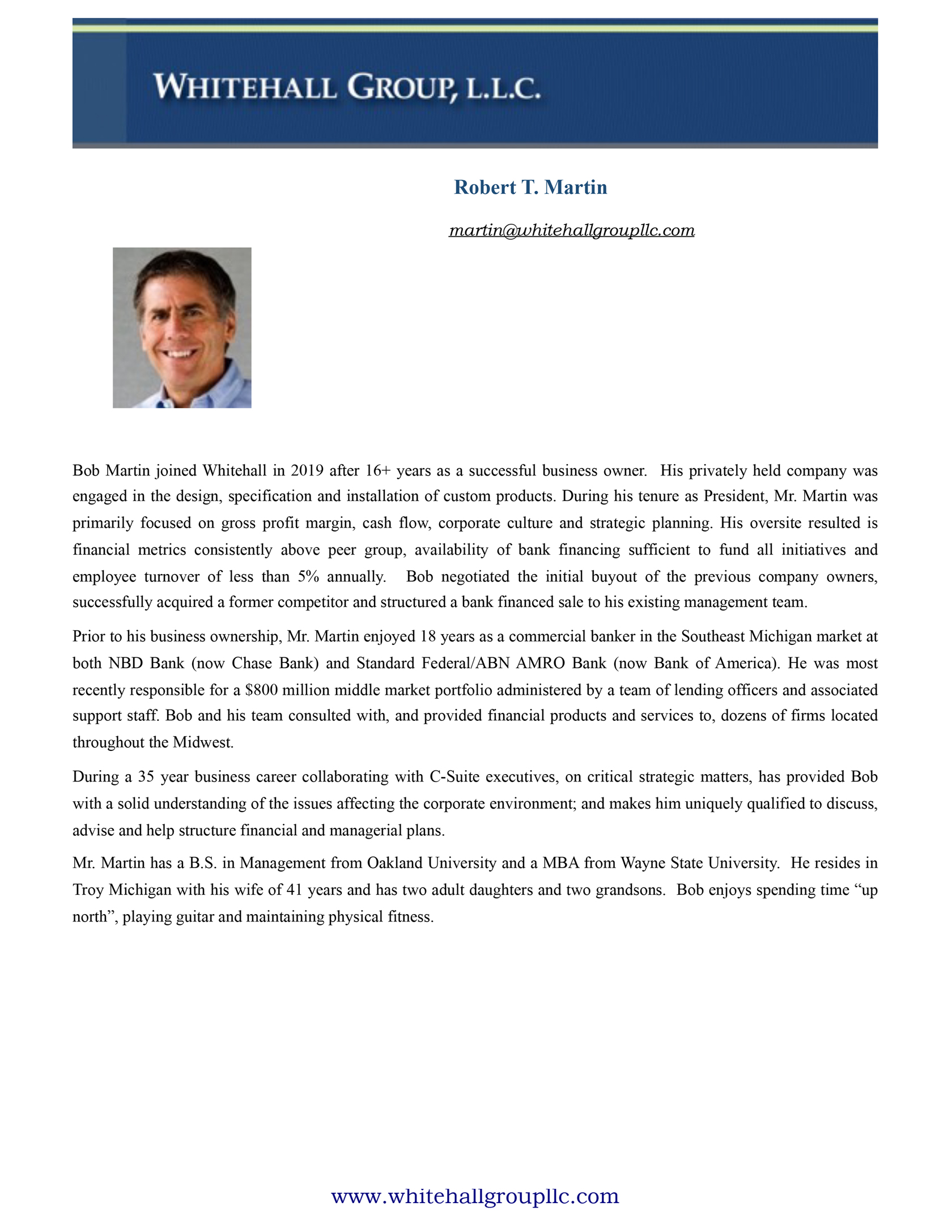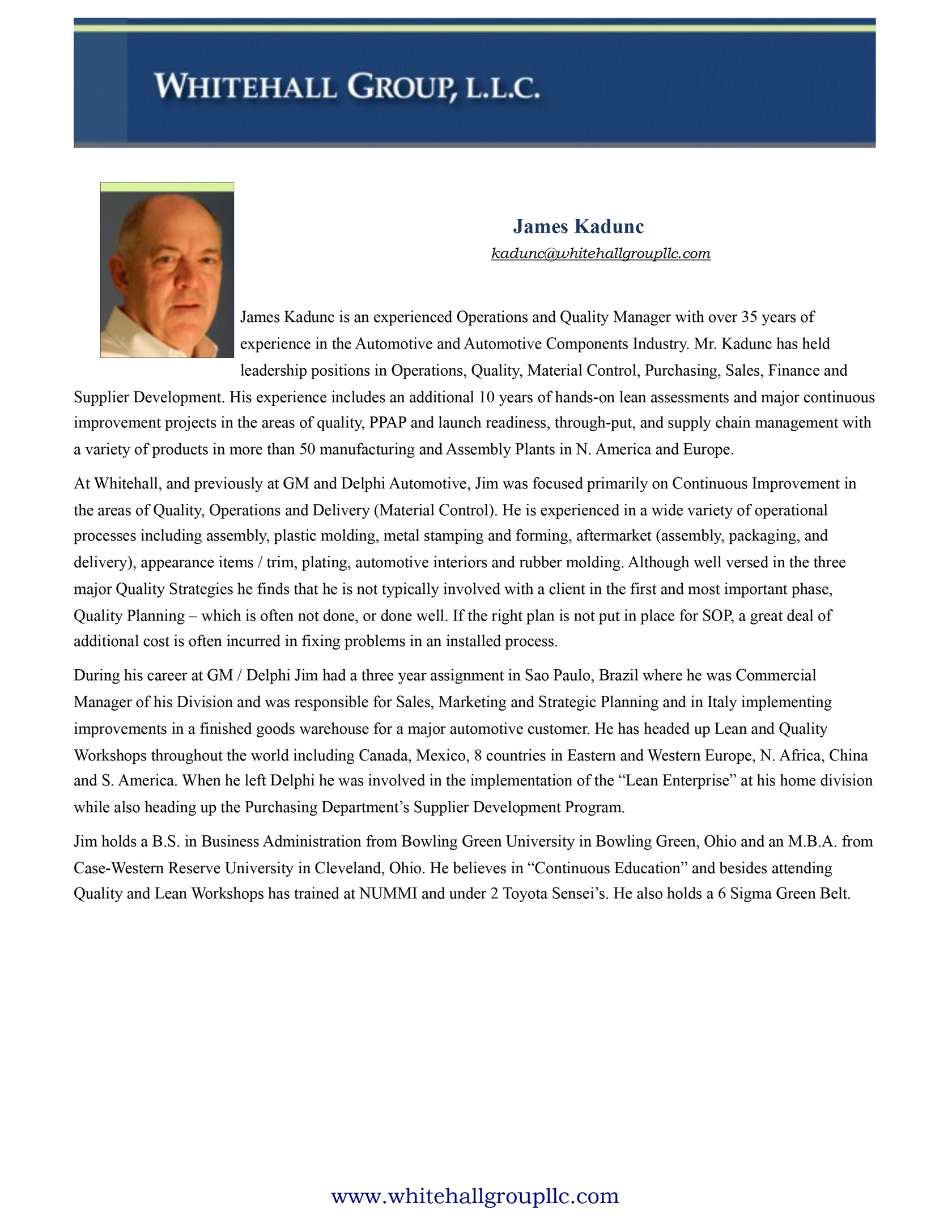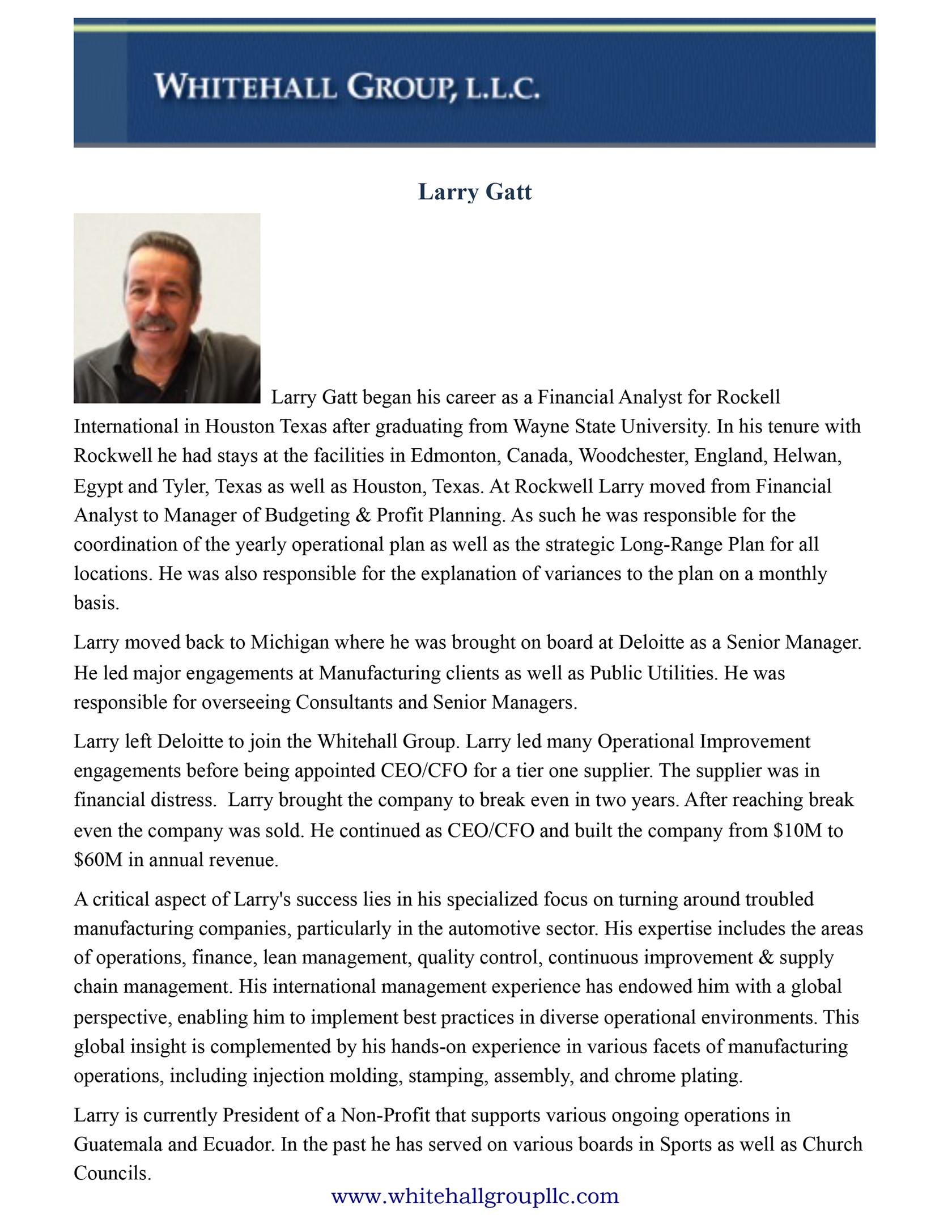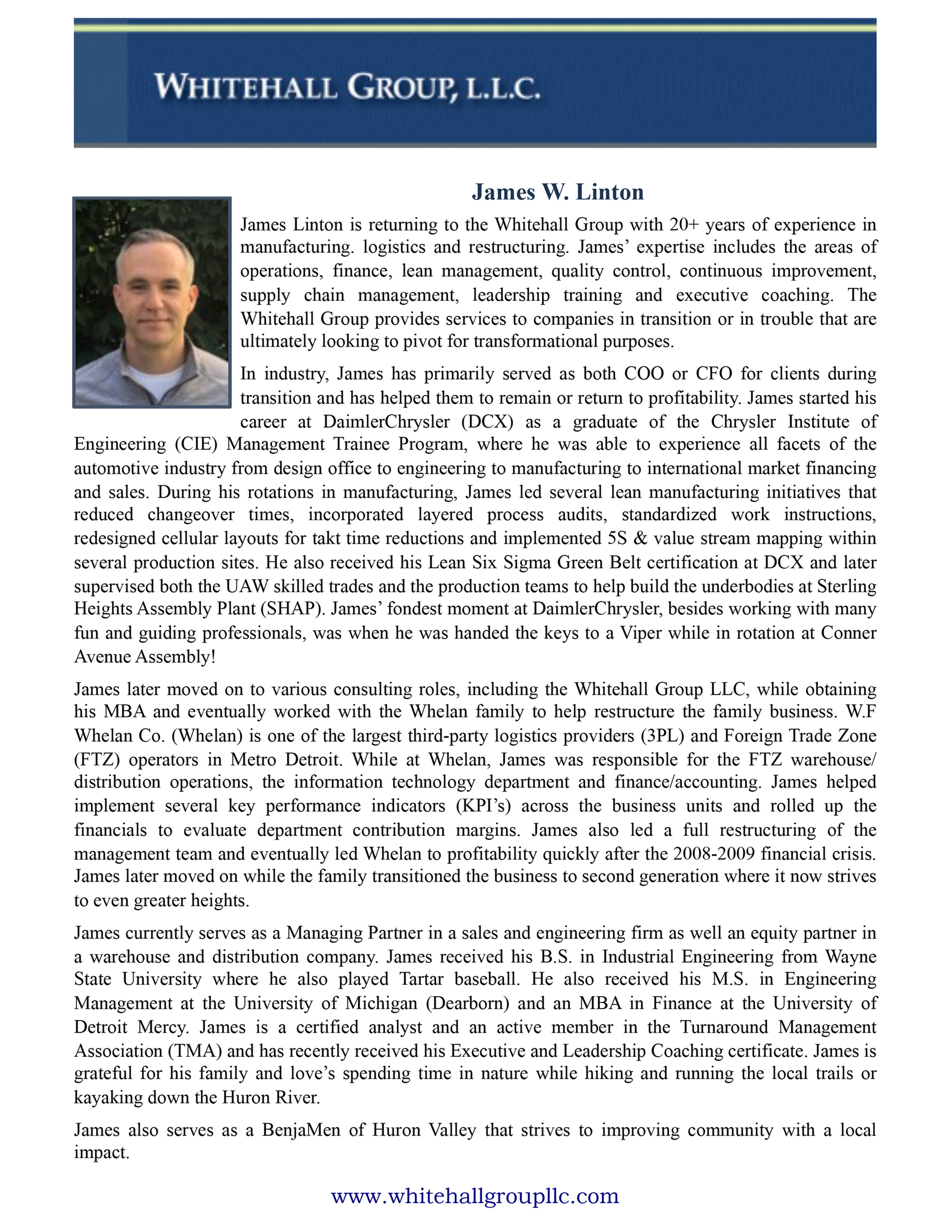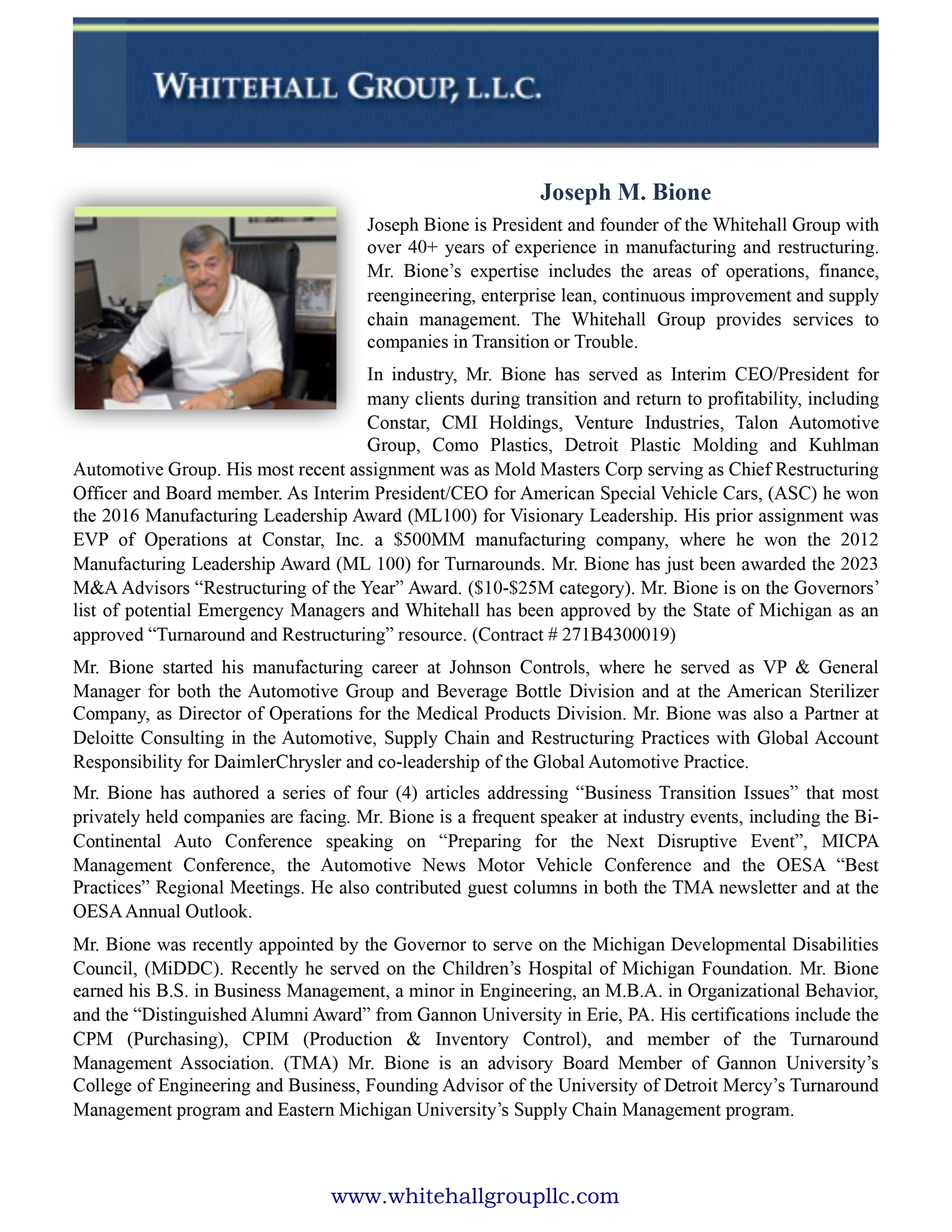Frequently Asked Questions




Whitehall & Its Services
What does the first complimentary meeting accomplish?
This first meeting is intended to get a good understanding of the objectives or goals of the privately held business founder and if any discussions on the subject were ever had. The other objective is to establish a relationship of trust based on personalities, our credentials, and past experiences in assisting owners in similar situations This introductory meeting is done in total confidentiality and at no cost with no obligations.
What are the Greatest Challenges to your Organization?
Is there an under performing division or plant that can benefit from our financial, commercial and operational expertise and assistance?
Is a project or launch causing your company significant problems? Are there additional sales and marketing opportunities to be addressed?
Is your company’s performance today what you, management, owners/shareholders, your bank and your customers expect?
Is your company at risk because of supplier performance issues? Have you identified the risks and what is your mitigation plan?
Is your goal to drive your company’s performance to the next level – from good to great, or from bad to good? What is your long-term strategy?
Transition Planning
What seems to be the most common issue among privately held business owners?
Most business owners invest a large majority of their personal wealth into their businesses, and the business becomes their personal lifestyle. Very few have thought about an exit strategy or a transition plan. Now that age, health, or other life factors are starting to play a part of their lives, discussions around a transition plan becomes critical.
Why do the majority of privately held business owners not have an exit strategy or a transition plan?
In our fast-moving lives, it’s hard to predict when to start thinking about life after business. In addition, most advisors fail miserably to discuss life challenges such as death, disease, divorce, disability, and disenchantment among a few potential issues. Therefore, those discussions never seem to happen until it’s too late.
What are some of the strategies that might come out of these discussions?
When we talk with business owners about transition planning, we aim to identify what they really want to do, as many of them have not considered it at all. Options may include such things as taking equity out of the company for retirement, selling the business, transitioning the business to family, or even growing the business. After obtaining an understanding, we walk them through the process to get transition plans in order.
How long does this transition planning process usually take?
That is a difficult question, as it depends on if any previous discussions have been held and if the owner is really ready to start the process in earnest. The process could take weeks and sometimes months. In many cases, it should become part of board or management meetings. At minimum, it should be part of an annual planning discussion. What’s right for the owners’ situation and the company will drive time.
Private Equity
How long has Whitehall been working with and supporting private equity groups?
Whitehall has been working with private equity groups of all sizes over the past 35 years. We have developed a set of services that augment the internal capabilities and special needs of private equity groups of all sizes and different industry segments.
What size of private equity groups does Whitehall Group work with?
Whitehall has worked with some of the largest private equity groups in the country, down to many small or family money groups. We have found that each private equity group has its own requirements and service needs, and we will customize our solution for each group and its unique requirements.
What services does Whitehall provide to private equity groups?
We provide four basic services to private equity groups:
- Operational due diligence to support their financial due diligence
- Interim management when needed
- Operational improvement when preparing to move an asset to maximize value
- Providing opportunities with our client base’s transition plans
What strengths does Whitehall bring to a private equity group?
Unlike many consulting firms who are primarily financial-based, Whitehall is as strong as experienced bank executives on a financial level, but second to none operationally. The third and most significant skillset is our experience in senior executive, W-2 roles, in running companies. Over the past 33 years, Joe Bione has run companies ranging in size from $5 million to $2 billion as president, CEO or CRO. This experience brings a unique perspective to any assignment.
Would Whitehall be willing to invest in a business with private equity if asked?
If asked, Whitehall would consider co-investing with private equity only if it made sense to bring Whitehall’s skillsets into the situation. Joe Bione believes that investing in the right opportunity not only helps the private equity group financially but also enhances skillsets to protect and grow the investment. Being a passive investor is not of interest.
